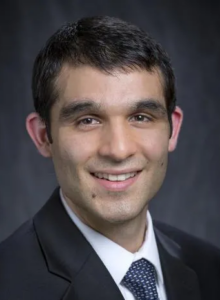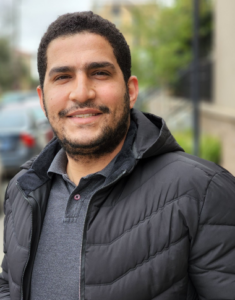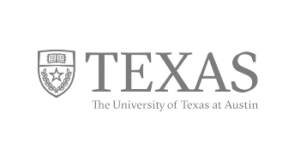I-Corps Training Alters Startup’s Target Market, Service Offering
In academia, the formula for success is publish or perish. In startups, the saying might as well be pivot or perish.
Case in point. X-Roots leaders Mohamed Hassan and Navid Jafari knew who the customers were for their technology, which provides insights into the health of wetland root systems. They validated their target market, state and federal agencies charged with monitoring and protecting wetlands, during the National Science Foundation’s I-Corps regional training program. Heading into the national I-Corps program, Hassan and Jafari thought they were set. Less than two weeks later, they knew they had to pivot.
“The problem for X-Roots, ironically, was that government agencies have a hard time pivoting. The agencies’ budgets are limited. Even if the agencies want to make a change, it can take a year or years to do that,” Hassan said. “X-Roots didn’t have time to wait.”

Navid Jafari
Jafari is an associate professor of civil and environmental engineering at LSU. Hassan is his research assistant. Hassan and Jafari moved from targeting government agencies to the private sector. Instead of wetlands monitoring services, X-Roots would assess coastal properties in terms of carbon credits.
Hassan, as technical lead of the X-Roots team, had to learn an entirely new economic arena on the fly.
“It was very stressful. I didn’t get much sleep for a month or so. But it had to be done, and now the startup is better positioned to succeed,” he said.
X-Roots uses advanced algorithms to analyze X-ray computed tomography, optical coherence tomography and scanning electron microscopy of wetlands root systems. The technology reveals whether roots are alive, dead or decaying, offering an unprecedented level of detail.
The idea behind X roots came while Jafari and Hassan conducted field work in support of another research grant, Anticipating Threats to Natural Systems: Dynamic Tools to Increase Coastal Resilience for Military Operations. The project, designed to make military operations better prepared and more resilient to climate-induced hazards, was funded by the U.S. Army Engineer Research and Development Center.

Mohamed Hassan
Jafari and Hassan realized their research might have other applications. You might say it was X Roots’ first pivot. The startup’s second pivot may be even more important.
“Right now, there isn’t a federal or state system for quantifying how much carbon a wetland or coastal property can capture,” Hassan said. “Our value proposition is that we can give you a more detailed and accurate estimate of a property’s carbon characteristics. The customer can take that information to the government agency and say ‘This is how much carbon we’re capturing. This is how many credits we should be assigned.”
X-Roots can give carbon credit buyers an idea of whether the plants are healthy enough to be around for years to come, an important consideration when a corporation is investing millions of dollars.
“These companies have a lot of money and have interwoven a social justice aspect into the fabric of their business plan,” Jafari said. “They are about making money, but responsibly, and that make those companies and their products more attractive to millennials and Gen Z.”
I-Corps national helped Jafari and Hassan learn how to talk business with the corporations.
“We’re not taught like that as academics. We think, ‘Here’s our great science. Go make a lot of money with it,’” Jafari said. “But first you must talk to people to see if they want your great science and are willing to pay for it.”
Those conversations – the national program requires participants to interview 100 prospective customers – led to a new business strategy, Jafari said. Pursuing that strategy also led Hassan to “phenomenal personal growth.”
The national program requires a three-person team: a technical lead, someone with deep expertise in the technology; an entrepreneurial lead, who leads the team and commercialization efforts; and an industry mentor, an expert with business experience.
Hassan began as X-Roots’ technical lead. But as the startup changed its focus to commercial customers, Hassan also took on many of the entrepreneurial lead duties, Jafari said. Hassan became comfortable calling on large corporations and discussing X-Roots’ value proposition.
Hassan said I-Corps national helped X-Roots set its path going forward.
The company plans to pursue a two-part strategy: furthering its research into root systems while continuing efforts to commercialize its algorithms. X-Roots recently won grants from the Environmental Molecular Sciences Laboratory, part of the Pacific Northwest National Laboratory in Washington, to help accomplish the former, and a National Science Foundation grant to pursue commercialization.








